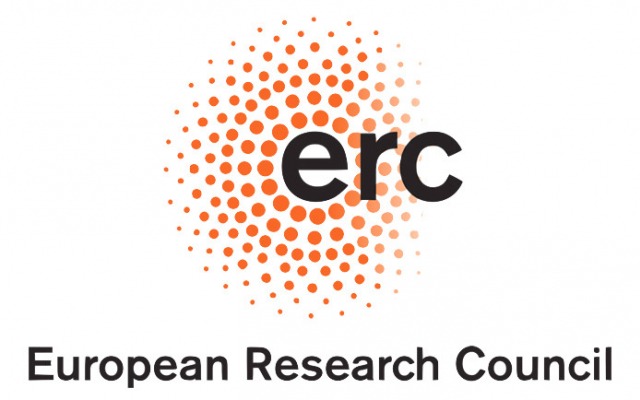research
ERC Consolidator Grant awarded to Professor Julian di Giovanni

A total of 18 competitive grants from the European Research Council have been awarded to current BSE Affiliated Professors.

BSE Research Professor Julian di Giovanni (UPF and BSE) has been awarded an ERC Consolidator Grant for his project, "Global Production Networks and Macroeconomic Interdependence."
European Research Council Consolidator Grants are highly competitive and awarded to talented researchers with 7-12 years of experience who want to establish their research teams and continue developing a successful career in Europe. Grant proposals are evaluated by selected international peer reviewers on the basis of excellence as the sole criterion. ERC grants have quickly become indicators of world-class research across all academic disciplines.
Current BSE Affiliated Professors all stages of their research careers have received a total of 18 ERC grants:
- 7 ERC Starting Grants for promising researchers just establishing their careers
- 5 ERC Consolidator Grants for mid-career researchers
- 6 ERC Advanced Grants for established research leaders
Full list of ERC Grant recipients and projects in the BSE research community
About the project: "Global Production Networks and Macroeconomic Interdependence"
Researchers and policymakers alike have highlighted the potential efficiency gains of a global production structure. However, such linkages also raise the possibility of risks. This project tackles both empirical and theoretical challenges in incorporating the microeconomic structure of trade and international production networks in the study of the propagation of shocks internationally, and their impact on macroeconomic interdependence. Using newly constructed micro-level datasets, the projeoct will provide quantitative analysis of the importance of the linkages in multicountry general equilibrium models of trade.
First, using firm export and imported-input linkages, the project provides a novel model-based estimation strategy to identify the role of country and firm-level shocks, and the implications of these estimates for the transmission of shocks across borders. By using structural trade models to estimate shocks at the firm level and studying the implications for the transmission of shocks across borders, this research helps bridge the micro-macro nexus in international economics.
Second, the project takes an even more granular focus by studying the role of firm-to-firm production linkages in transmitting shocks across countries. To do so, it exploits a novel matching procedure between a country’s administrative dataset and cross-country firm-level data. The project further builds on these data by adding in domestic bank-firm relationships. This strategy allows for the study of how financial shocks are exported abroad via firms’ trade and multinational linkages.
Third, the project incorporates the insights from the empirical work into a full-scale multicountry general equilibrium model of trade, which allows for firm-level heterogeneity and microeconomic and macroeconomics shocks. It uses the model for a quantitative study of the cross-country transmission of the different shocks via trade. This permits the performance of counterfactuals and examination of the impact of policies, such as how opening to trade impacts macroeconomic interdependence.
About Julian di Giovanni
Julian di Giovanni earned his PhD in Economics at the University of California, Berkeley in 2004. Currently he is a Professor at Universitat Pompeu Fabra (UPF), the Deputy Director for Research and a Research Professor at the BSE, a Research Associate at the Center for Research in International Economics (CREI), and a Research Fellow of the CEPR. He worked for the Research Department of the International Monetary Fund from 2004-2013. He has been a Visiting Assistant Professor at the University of Toronto, and a Visiting Scholar at the Banque de France, Central Bank of the Republic of Turkey, and the IMF. He was awarded an International Incoming Fellowship from the European Research Council Marie Curie Actions (2014), and a European Research Council Consolidator Grant (2016). His work has appeared in the American Economic Review, Econometrica, the Journal of Political Economy, the Journal of the European Economic Association, American Journal of Economics: Macroeconomics, and the Journal of International Economics, among others. His research interests include International Economics and Macroeconomics.
In addition to his research activities, Professor di Giovanni teaches in the BSE master's programs and the GPEFM doctoral program (UPF and BSE), as well as the Barcelona CREI Macroeconomics Summer School.
